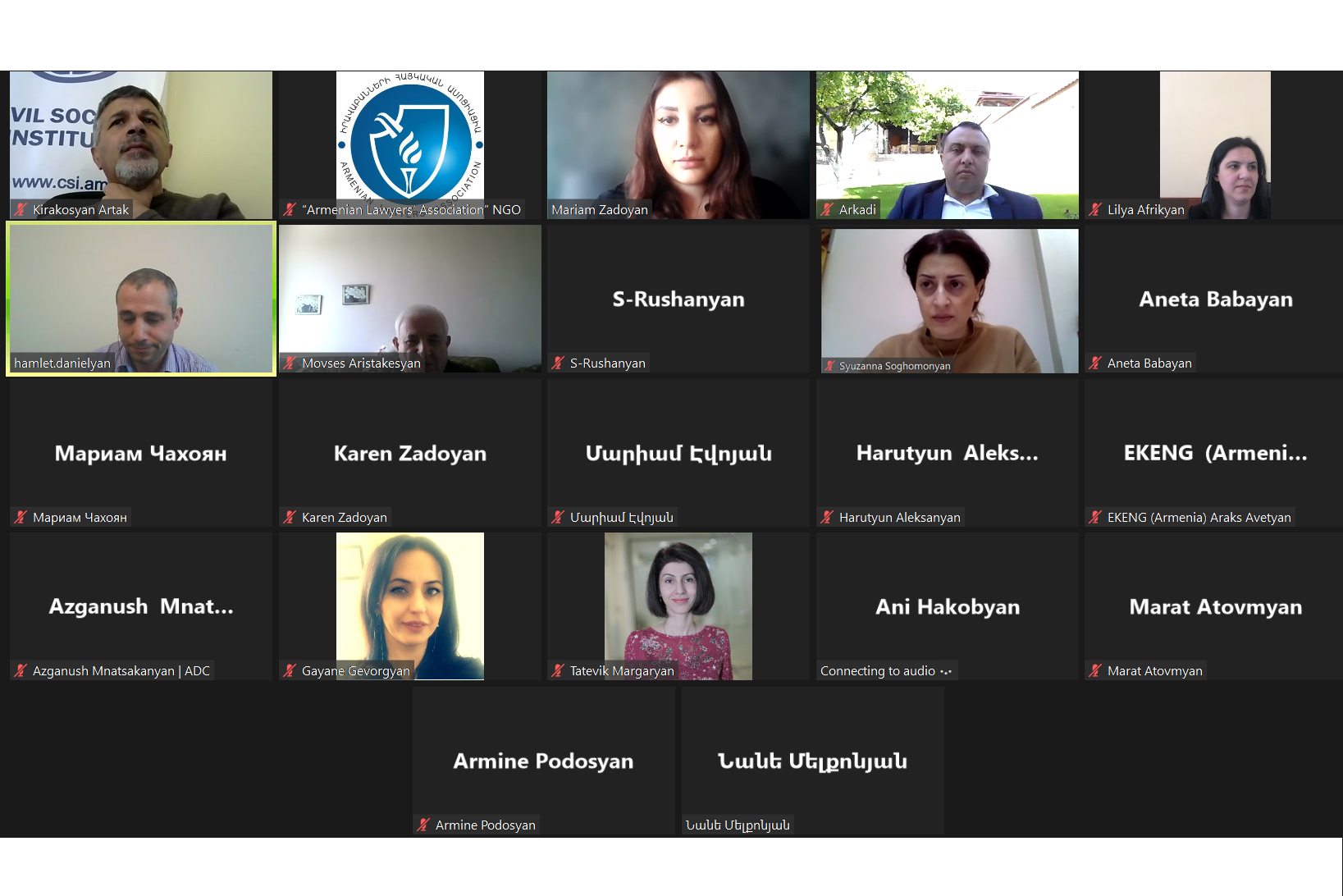
The second online discussion in the format of public-private dialogue took place on 17 May within the framework of the development of the 5th Open Government Partnership (OGP) National Action Plan. Representatives of state bodies, specialized CSOs and experts participated.
The first part of the discussion focused on the need to develop a strategy for public communication and access to information in order to have accurate, timely, targeted communication, and the second part focused on the unified e-Justice system, the introduction of the eCourt-statistics tool and ongoing work related to it.
Ms Aneta Babayan, Advisor to the RA Deputy Prime Minister Mher Grigoryan, mentioned that the state has already undertaken quite obvious commitments to implement serious strategic reforms in the field of communication.
“We have a lot of challenges in the field of strategic communication and information policy of the state and we have registered problems within the framework of the strategy and if we divide those problems into several parts, they will include the range from institutional arrangements, legal framework, and capabilities to tools. We have registered problems in four different dimensions,” Aneta Babayan said.
According to her, by 2024, a number of important steps have been taken, starting from data policy, providing its formulation and legislation, cyber security legislation, their institutional arrangements and structures, as well as solutions to issues related to the modernization and interoperability of administrative information systems.
In the field of public communication and information, there is a significant difference, for example, in the work with urban and rural citizens. Ms Syuzanna Soghomonyan, Program Expert of the Armenian Lawyers’ Association, mentioned in her speech. She said that one of the institutional issues raised was the lack of rapid and timely response mechanisms. “Both inside Armenia and abroad, as a result of the lack of a public communication strategy in foreign diplomacy, very often both the responses and the reactions are situational, unsubstantiated, and as a vivid example I can mention the provision of improper public communication during the epidemic. Because in case of incorrect communication, there can be negative outcomes, such as public panic, spreading misinformation, etc.”
Syuzanna Soghomonyan also mentioned that state structures cannot provide public information and communication only through press releases. Now more reference is made to any publication of this or that media outlet than to communication and awareness raising with the citizens.
According to Mr. Arkady Sahakyan, Chairman of the Governing Board of the CSO Anti-Corruption Coalition of Armenia, the need to solve a number of problems in the sphere was especially noticed during the war, when quite a lot of misinformation was circulating.
“Here we must have a clear idea of what problems we face in relation to information security. We have two types of problems: “The first is of a technological nature, when the relevant information is provided by the relevant specialists to protect the information of the country and its own business from various hacker attacks. And the second is related to the population: increasing technological security literacy, education, so that we can educate the people to use the Internet properly, not to fall victim to hacker attacks,” Arkady Sahakyan said.
Expert Ms Mariam Zadoyan mentioned that the unified system of electronic justice has not been introduced. She presented a number of proposals, in connection with its implementation, including:
- Measurement of access to legal needs and resources, publication of results,
- Improving legal capacity (access to legal resources, alternative dispute resolution options);
- Ensuring access to legal aid (expansion of legal services in vulnerable communities);
- Strengthening justice processes (accessible language initiatives, specialized courts and training of judges,
- Continuous evaluation of the results of justice (high priority areas).
She also noted that justice, as a means of exercising open governance, should ensure existence of appeal mechanisms, and openness and access to all procedural and substantive rights, as well as regular training of justice officials (right to information, taxes and justice, climate change and environmental issues).
Adviser to the Minister of Justice Serzh Rushanyan, in his turn, highlighted the necessity of introducing e-justice tools, noting that the sphere is a priority for the Ministry.
